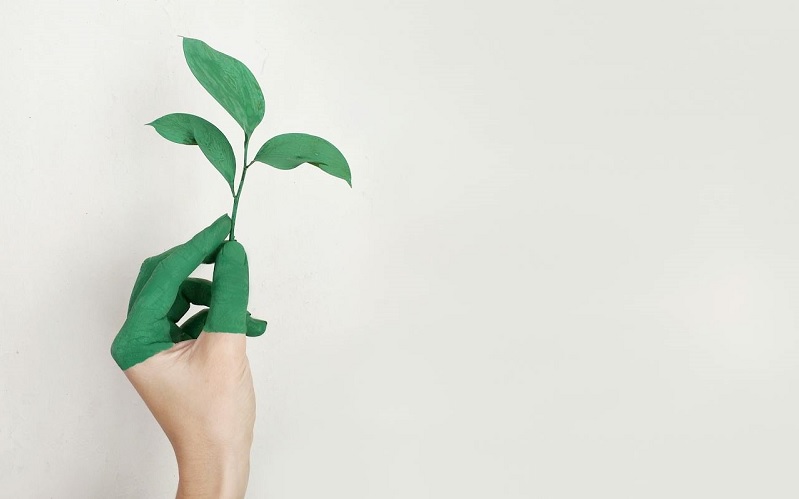 Add My Company
Add My Company

The year 2024 represents a crucial moment in the ongoing pursuit of sustainability, as environmental concerns continue to intersect with advances in technology, economic shifts, and social influences.
Here are five trends we believe will propel us towards a more sustainable future for our planet...

AI Expands for Sustainability
In 2023, artificial intelligence (AI) and machine learning became integral parts of our daily lives. The UK AI market is currently valued at over £16.9 billion and is projected to reach £803.7 billion by 2035, according to the US International Trade Administration.* Around one in six UK organisations (432,000 in total) have implemented at least one AI technology* and four out of five teenagers in the UK are using AI tools. This indicates that Gen Z is embracing AI more than any other generation.*
With the increasing demand for AI and its diverse applications, it can be a powerful tool for addressing complex sustainability challenges. This report by MIT Technology Review highlights potential areas for AI contributions. Examples include forecasting future energy demands, developing new materials, tracking deforestation more effectively and improving building energy efficiency.
AI is already being used in biodiversity conservation, with machine learning models helping to identify regions most in need of protection.
As we move deeper into 2024, the marriage of AI and environmental stewardship holds promise for sustainable development.

Sustainability Reporting Ramps Up
In 2023, a major trend was the implementation of standardised ESG reporting. Moving forward to 2024, these disclosures will be accelerated with the introduction of a mandatory reporting system – the EU’s Corporate Sustainability Reporting Directive (CSRD). As a key component of the European Green Deal, the CSRD will mandate nearly 50,000 European companies to disclose their sustainability performance, including non-EU companies with subsidiaries operating within the EU or listed on EU-regulated markets.*
These new regulations will guarantee that investors, civil society organisations, consumers and other stakeholders have access to the information necessary to evaluate the influence of companies on people and the environment.
ESG reporting is evolving from a voluntary practice to a critical element of corporate responsibility and long-term success. In 2024 and beyond, embracing robust ESG reporting and practices will be increasingly essential for companies to attract investors, retain talent, manage risks, and create lasting value for stakeholders and the planet.

The Growth of Green Jobs
The push for a green economy is not only environmentally responsible but economically promising, with diverse job opportunities emerging across various sectors, offering numerous positions for individuals perhaps seeking newer, more sustainable career paths.* This can include positions at companies that manufacture environmentally friendly products or provide sustainable services.
The UK Committee on Climate Change (CCC) predicts that the UK will see 135,000 to 725,000 new jobs in low-carbon sectors by 2050.* The World Economic Forum (WEF) predicts that by 2030, 3 million jobs will be lost due to automation and the decline of fossil fuels, but over 13 million new green jobs will be created.* While these are only projections, it is safe to say that the green job market has significant potential for growth in the coming years.
Furthermore, Allen Blue, co-founder of LinkedIn, believes that in the future, most jobs are likely to require green skills, not just the most obvious ones. He states, "We think that more than 50 percent of jobs - are going to be transformed to include some green skills as part of their skill portfolio.”* However, he believes that employers, investors, and government have to do more to make the transition to a green workforce a reality.

A Demand for Sustainable Tourism
Sustainable tourism aims to recognise and address the overall impact of tourism by minimising its negative effects and maximising its benefits, particularly on the environment. This involves prioritising the maintenance of essential ecological processes and conserving natural heritage and biodiversity.
According to a recent report from Future Market Insights, the sustainable tourism market will see significant growth from 2022 to 2034. From a value of approximately £1 trillion in 2022, the market is expected to reach $8.4 trillion by 2032.*
Multiple factors are fuelling the drive for sustainable tourism. The UN World Tourism Organization has long been focused on promoting sustainable tourism development and providing guidelines for operators to prioritise the environment and the well-being of local communities. In addition, millennials and Gen Z, who have significant influence on markets, have a strong preference for sustainable tourism, with 67% of Gen Z travellers considering sustainable travel options.*

Plastic-Free Packaging
Excessive packaging waste is a significant contributor to global warming and environmental pollution. The recent surge in e-commerce and home delivery services, fuelled by the pandemic, has resulted in a substantial rise in packaging waste. The gravity of the issue has been emphasised by major international events, such as the 28th Conference of Parties (COP28),* as well as legislative advancements like the European Union's Single-Use Plastics Directive (SUPD) and the Packaging and Packaging Waste Directive (PPWD). At the same time, consumer demands are changing, prompting the packaging industry to seek sustainable packaging options through 2024.
Eco-friendly packaging can come in various forms. Depending on the application, options can include recyclable materials, biodegradable materials, plastic-free alternatives, and even reusable solutions. Truly eco-friendly packaging minimises the use of natural resources and energy consumption. It is safe for both individuals and the environment.
In particular, biodegradable packaging is taking centre stage as a wave of innovative startups is poised to redefine sustainability. These include packaging made from mycelium, corn, seaweed, and bioplastics derived from plants like sugarcane.

Although some of these trends may already be familiar to us in some small way, 2024 will look to expand on them significantly and become more frequent in our daily lives.
For more information on The Green Trends Set to Make an Impact in 2024 talk to Glasdon UK Limited

